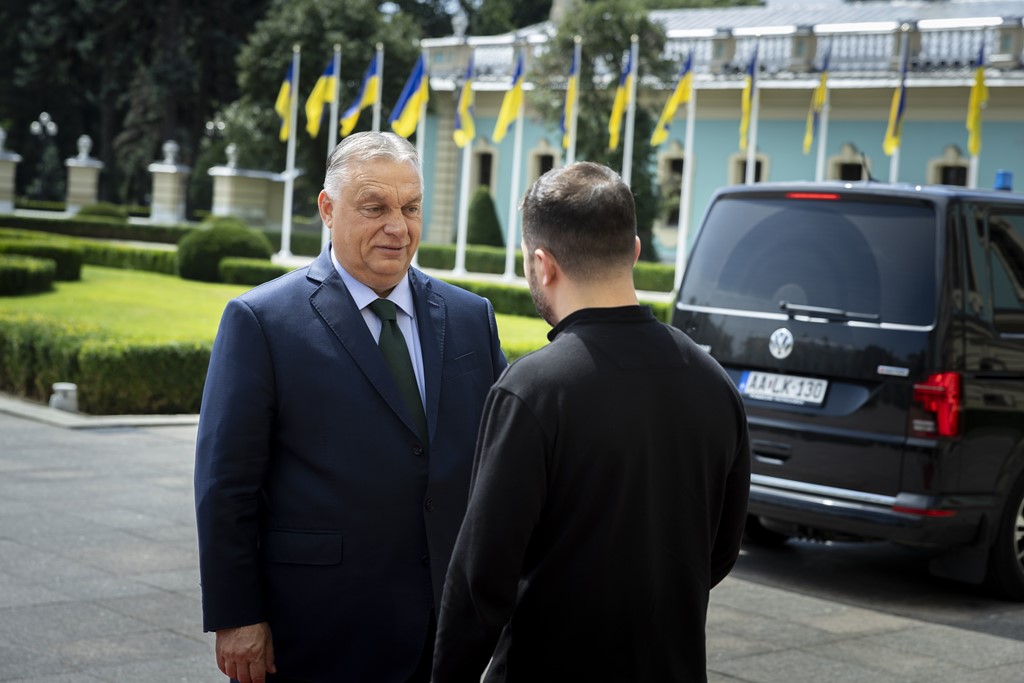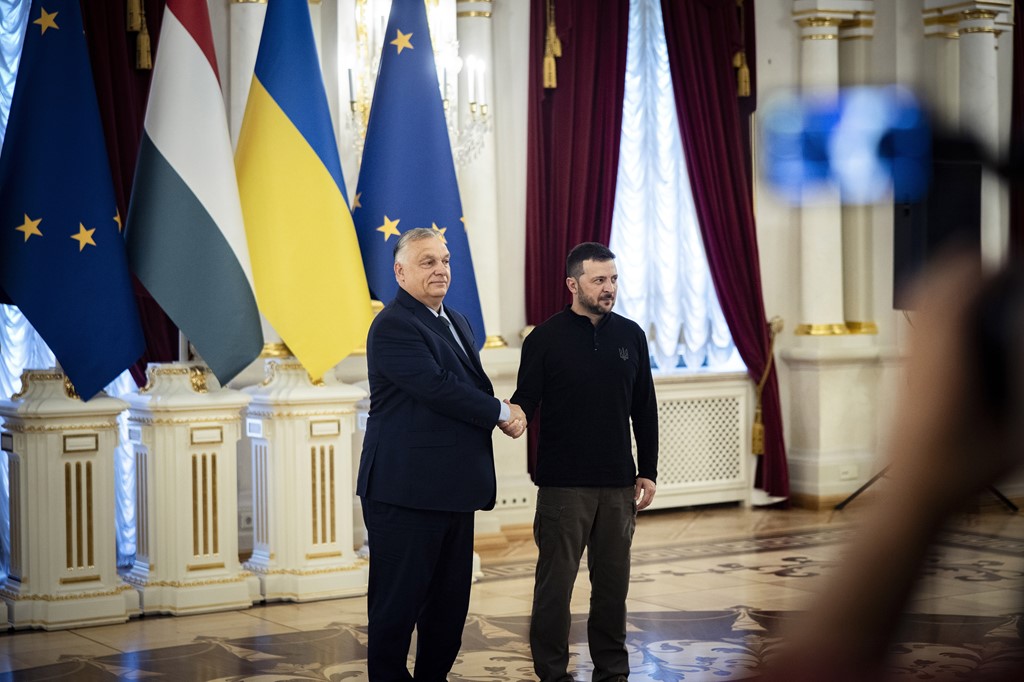Ukraine’s Security Service (SBU) has announced the foiling of an alleged plot to overthrow the government, coinciding with a significant diplomatic meeting between Ukrainian President Volodymyr Zelenskyy and Hungarian Prime Minister Viktor Orban in Kyiv.

The SBU reported on its Telegram channel that four individuals, described as Russian agents, have been arrested and charged with planning to incite a riot in Kyiv on Sunday. According to SBU spokesperson Artem Dekhtyarenko, the accused intended to use the unrest as a distraction to “seize” the parliament building and disrupt its operations. Evidence reportedly found during searches of the suspects’ residences included weapons, ammunition, incriminating recordings, and computer equipment. If convicted, the accused could face up to 10 years in prison.
This security development comes as Hungarian Prime Minister Viktor Orban makes his first visit to Ukraine since Russia’s full-scale invasion began in February 2022. Orban, known for his pro-Russian stance within the European Union, was welcomed in Kyiv by President Zelenskyy. The primary focus of their meeting is expected to be discussions on potential peace-building opportunities amidst Ukraine’s ongoing defense against Russian aggression.

Orban’s visit is particularly noteworthy given Hungary’s position as one of the most supportive European nations of Vladimir Putin’s regime. The Hungarian leader has consistently opposed sanctions against Russia and has been a source of frustration for both the European Union and NATO regarding aid for Ukraine and the country’s potential accession to these alliances.
This juxtaposition of events – the thwarting of an alleged coup attempt and a high-stakes diplomatic meeting – underscores the complex challenges facing Ukraine. As the country continues to defend itself against Russian aggression, it must also navigate intricate diplomatic relationships within Europe and address internal security threats.

The meeting between Zelenskyy and Orban could potentially signal a shift in Hungary’s stance or, at the very least, open new channels of communication between the two nations. However, given Hungary’s historical alignment with Russia, the outcomes of this meeting will be closely watched by international observers.
As these events unfold, they highlight the multifaceted nature of the ongoing conflict in Ukraine, encompassing not only military aspects but also intricate diplomatic maneuvers and internal security challenges. The international community remains focused on Ukraine as it continues to navigate these complex geopolitical waters.



